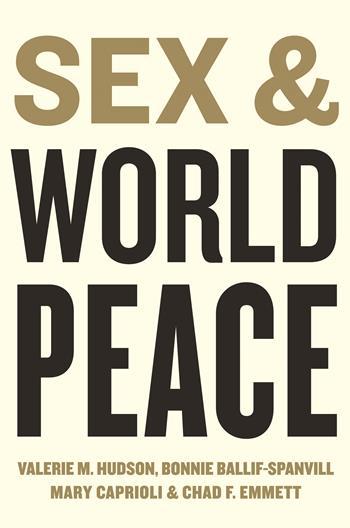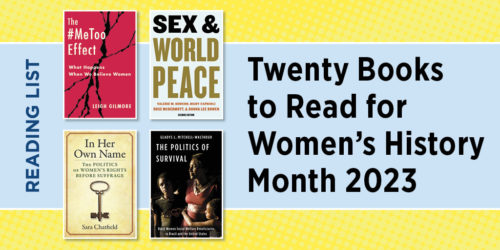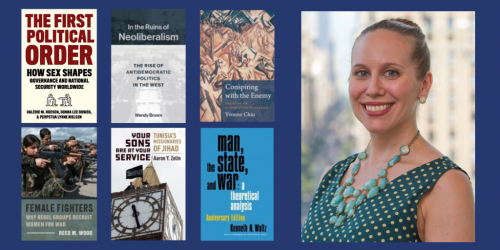Robin Morgan, Gloria Steinem, and Others on Sex and World Peace

“The very best predictor of a state’s peacefulness is not its level of wealth, its level of democracy, or its ethno-religious identity; the best predictor of a state’s peacefulness is how well its women are treated.“
~ from Sex and World Peace
In the past few days a variety of sources have focused their attention on Valerie M. Hudson, Bonnie Ballif-Spanvill, Mary Caprioli, and Chad F. Emmett’s much talked-about and increasingly influential work, Sex and World Peace. Commentators, activists, and scholars have recognized the importance of the book for the women’s movement as it offers the first real scholarly understanding of the impact of a nation’s treatment of women on its security and relations with other countries.
Radio host, noted feminist activist, and author Robin Morgan interviewed Valerie Hudson for her show on Women’s Media Center Live. In the interview, Morgan and Hudson discuss a variety of topics central to the book, including the ways in which a patriarchal society is not compatible with a healthy democracy.
Hudson begins the interview by discussing her experiences as doctoral student in security studies and how the existence of women was barely, if at all, mentioned. In large part, as she explains, Sex and World Peace challenges this omission by showing the ways in which the security of women is integral to the security of the state.
Valerie Hudson also points to how the treatment of women both in law and in practice influences a nation’s life expectancy rate (for both men and women), food security, and a host of other indicators. Seen in this light, she suggests that India, often referred to as the world’s largest democracy, fails to live up to the ideals of a democratic society due to its poor treatment of women.
Another proponent and admirer for the book is none other than Gloria Steinem, who in a recent talk on the occasion of Ms. Magazine‘s fortieth anniversary praised Sex and World Peace. (She begins her comments on the book at the forty-minute mark.) In particular, she argues that the findings and arguments of the book should play an important role in US foreign policy.
Finally, the book was also prominent in a recent essay by Soraya Chemaly published in the Huffington Post. Chemaly examines the book’s central claim that how a nation treats its women is the best indicator of its peacefulness. Quoting from the book, Chemaly suggests that one of the most important ideas of 2012 comes from Sex and World Peace:
The very best predictor of a state’s peacefulness is not its level of wealth, its level of democracy, or its ethno-religious identity; the best predictor of a state’s peacefulness is how well its women are treated. What’s more, democracies with higher levels of violence against women are as insecure and unstable as nondemocracies.




2 Responses